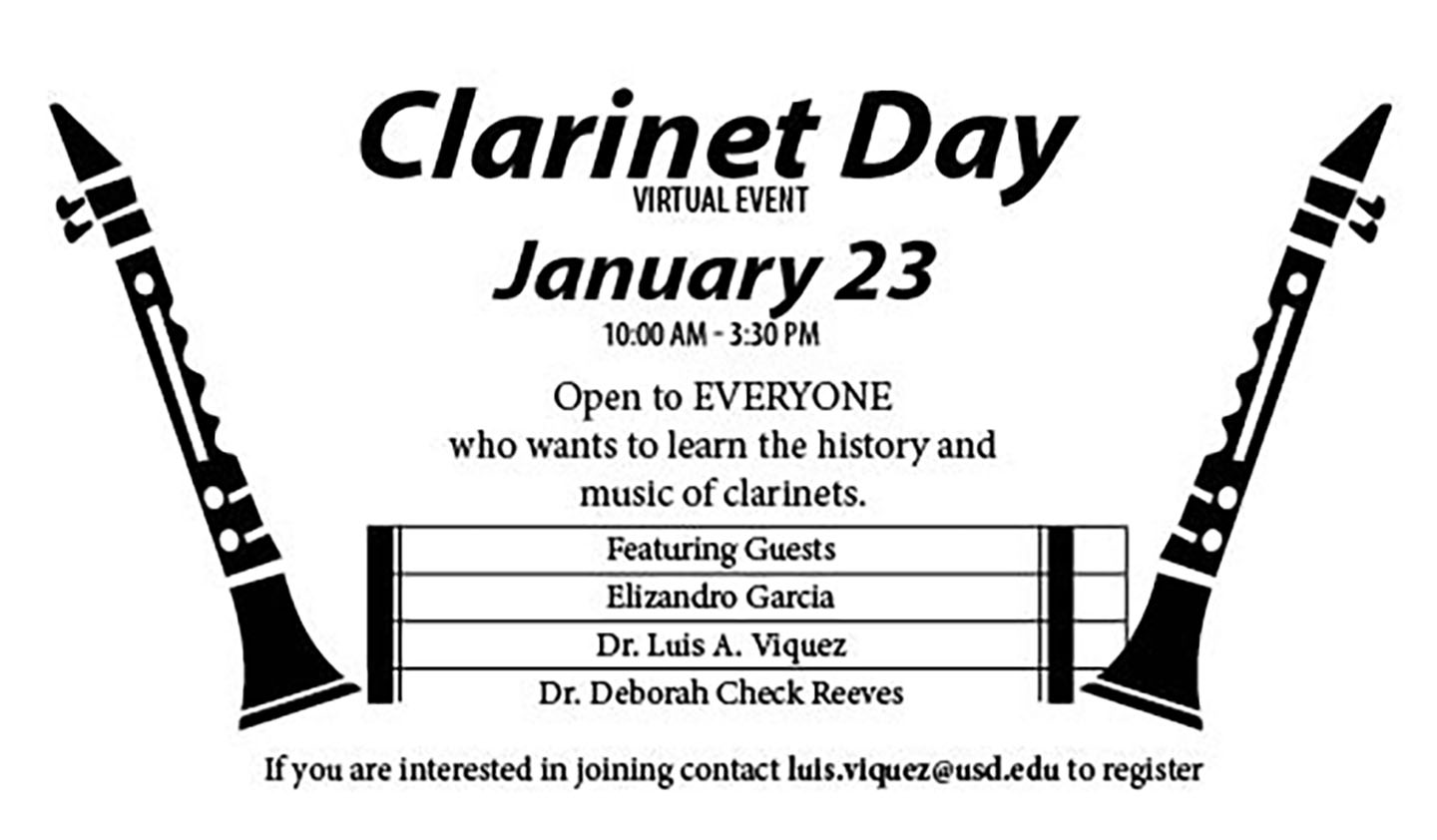
Clarinet Day will explore history, significance of clarinets
On Jan. 23, USD will host the 2021 South Dakota Clarinet Day, an event for clarinetists of all ages and skills to come together and celebrate the instrument. Though it’s usually in-person, this Clarinet Day will be held over Zoom.
The event will feature a masterclass led by Chigaco-based clarinetist Elizandro García. Assistant Professor of Clarinet and host of Clarinet Day, Luis Viquez, said García explores a lot of avant-garde music, and is a fantastic educator. He said García will focus on deep-listening and improvisation in his masterclass.
“I don’t recall any other clinician talking about that to the clarinet students here at the University of South Dakota,” Viquez said.
Usually, Clarinet Day would include a recital featuring Viquez and the guest musicians. This year, there will be a special activity in which participants will be encouraged to play their clarinets with García over Zoom.
These exercises will encourage players to move, react and even dance while they play or listen to music. Viquez said he is looking forward to this activity because he thinks it will help USD students improve their musicianship.
“When we train musicians in classical music, we follow a lot of rules,” Viquez said. “Unless we are playing jazz, sometimes we forget about the aspects of improvisation and exploration of music, and I think that part of being a musician is to have expressive ideas of your own.”
The event will also include a presentation on the history and cultural significance of the clarinet by Deborah Check-Reeves of the National Music Museum (NMM) titled “Clearly Clarinets: Tools of Human Expression.”
Check-Reeves, the Curator of Education and Woodwinds at the NMM, said her presentation will look at clarinets as indicators of what has happened in history. She said while modern clarinets have been around since about 1700, beating-reed instruments — similar to clarinets — have existed since 3000 B.C.
“What does this say to us today, except that the clarinet… was important, even in a culture from that long ago,” Check-Reeves said. “I think they can be regarded as tools, just as a shovel or a bow and arrow can be considered a tool, except a very special kind of tool that enabled us to express ourselves musically.”
All of the instruments Check-Reeves will use are from the NMM’s collection. Her talk will show the clarinet’s wide and varied history, as well as discussing how the instrument isn’t in its final form despite numerous innovations.
“It wasn’t until I was a graduate student before I was introduced to the fact that the clarinet didn’t always look the way it looks today, and it was a revelation to me,” Check-Reeves said. “One of my personal goals of this presentation is to give participants a foundation in the history of the instrument that they have chosen to play.”
Viquez said he feels very lucky to be able to collaborate with the NMM and use their resources for the event.
“I am in a position that a lot of clarinet professors at major universities would like to be in, because just around the corner we have examples of how the clarinet looked during the times of Mozart or Beethoven,” Viquez said.
The 2021 South Dakota Clarinet Day is open to everyone and will take place Jan. 23 from 10 a.m. until 3:30 p.m. Those interested in participating should contact [email protected] to register.


